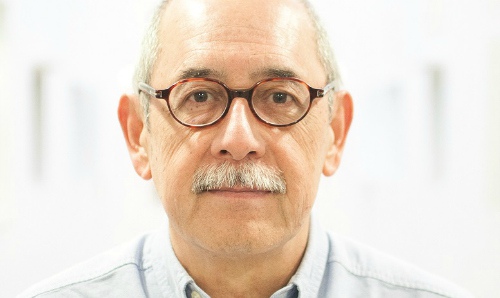Helping lift families out of poverty
In 2013, 767 million people – or one in ten people in the world – were estimated to be living below the international poverty line. Dedicated to high-quality poverty research with real societal impact, The University of Manchester is now shaping policy and practice in several countries, helping to alleviate poverty on a massive scale.
Global problem: persistent poverty
Addressing persistent poverty across the world is an urgent issue, but many proposed solutions attempted in the past have failed. Promising ideas can prove unsuccessful in practice, and progress can often be temporary.
Families affected by chronic poverty find it hard to send their children to school and have limited access to markets for goods and services.
Manchester solution: direct cash transfers
Research beacon breakthroughs
Find out how world-class academic research is commercialised by scientists, engineers, medical professionals, business leaders and policymakers at Manchester.
Armando Barrientos, Professor of Poverty and Social Justice at our Global Development Institute, led international research into the scope and effectiveness of direct cash transfers as a means to reduce persistent poverty. These are regular sums of money given by government to families living in extreme poverty to use as they see fit.
The research by Professor Barrientos and his colleagues in Manchester’s Chronic Poverty Research Centre initially examined the impact of tax-financed pension programmes on poverty among older people, before extending its focus to all forms of direct transfer to poor households.
The research demonstrated that direct anti-poverty transfers are a practical, politically sustainable and financially feasible means to address extreme and chronic poverty in low-and middle-income countries.
Professor Barrientos says: “The key findings were that properly designed and implemented anti-poverty transfers strengthen the productive capacity of households, address long-term structural and persistent poverty and allow households to allocate their resources."

“These breakthrough Manchester findings have shaped development policy, influenced national governments and informed practice in several countries, helping to alleviate poverty across the globe."
“Poverty research has a long tradition at Manchester,” he added. “I wanted to conduct my research here because of the critical mass of researchers from a range of disciplines working on poverty and development at an international level.”
Life-changing impacts
Direct results of our research proving the long-term positive impacts of direct cash transfers in tackling persistent poverty include:
- US$2 per month pledged to all children born in South Sudan after the 2006 Peace Accord;
- 40% increase in UK government funding for the Department for International Development’s Chars Livelihood Programme, which aims to improve the livelihoods of more than one million people in chronically poor households in the island Chars of north-western Bangladesh;
- implementation of a pilot anti-poverty transfer programme in Uganda;
- shaping of development policy at a global level, following Professor Barrientos advising the UN High Level Panel Report for the post-2015 development agenda.
Find out more
Read the research papers:
- 'Design and rural context in antipoverty transfers: Implications for programme outcomes', Global Food Security, Vol 12, 2016
- 'Justice-based social assistance', Global Social Policy, Vol 16, 2, 2016
- 'Antipoverty transfers and labour market outcomes: Regression Discontinuity Design findings', The Journal of Development Studies, Vol 51, issue 9, 2015
- 'Is there a role for social pensions in Asia', Asia & the Pacific Policy Studies, Vol 2, 1, 2015
Meet the researcher:
- Professor Armando Barrientos, Professor of Poverty and Social Justice
